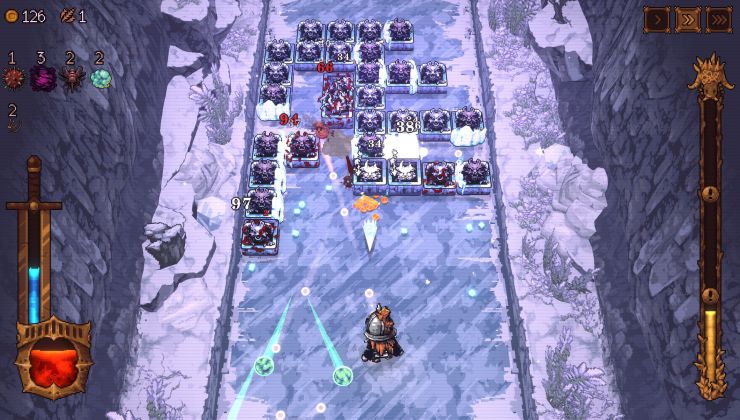GamesIndustry.biz recently spoke to Ubisoft, and something said during the interview seems to have created some sparks across the industry about game ownership.
What was said is not all that surprising really. Ubisoft, like multiple others, run subscription services with theirs being Ubisoft+ that just had a bit of a change into multiple tiers. These services are everywhere now like Xbox Game Pass, EA Play and others. That, and GI.biz spoke to Philippe Tremblay, director of subscriptions at Ubisoft so obviously they're going to be somewhat biased on what they think — it's their job.
From the interview, the bit in question:
One of the things we saw is that gamers are used to, a little bit like DVD, having and owning their games. That's the consumer shift that needs to happen. They got comfortable not owning their CD collection or DVD collection. That's a transformation that's been a bit slower to happen [in games]. As gamers grow comfortable in that aspect… you don't lose your progress. If you resume your game at another time, your progress file is still there. That's not been deleted. You don't lose what you've built in the game or your engagement with the game. So it's about feeling comfortable with not owning your game.
The GOG team certainly took notice, mentioning on X (formerly Twitter): "You should feel extremely comfortable with owning your games on GOG (they're DRM-free) :)".
It's worth noting that clearly it's going well for Ubisoft, as Tremblay mentioned October 2023 was their biggest month in Ubisoft+ history. So people are clearly buying into game subscriptions more and more. And related, Microsoft said back in 2022 that Xbox Game Pass had 25 million subscribers. Subscriptions are clearly here to stay.
Also worth noting, to be clear, Ubisoft don't plan to force you into one way or another noting:
"The point is not to force users to go down one route or another," he explains. "We offer purchase, we offer subscription, and it's the gamer's preference that is important here. We are seeing some people who buy choosing to subscribe now, but it all works."
Given how services can just entirely remove your paid-for content, this whole issue of ownership is a concerning one. Like how Sony were going to just remove previously purchased Discovery content from users, although they've since backtracked on that after public outcry.
The thing is, you have to remember, you don't actually own your games on Steam either. This has been well-known for a long time now. As per Steam's Subscriber Agreement under the "A. General Content and Services License" section:
[…] The Content and Services are licensed, not sold. Your license confers no title or ownership in the Content and Services. To make use of the Content and Services, you must have a Steam Account and you may be required to be running the Steam client and maintaining a connection to the Internet.
I'll admit, it's not entirely the same. Valve won't take away your games if you don't pay them every month, it's not a subscription in the same way, and plenty of games on Steam are actually entirely DRM-free and can be run outside of Steam. But still, it's something to remember, ownership has been on the decline for a long time.
A lot of it simply comes down to convenience though right? Plenty of us pay for Netflix, Disney+, Amazon Prime and so on and so on — so we can just quickly jump into a show or a movie they have available. But then the problem there is, again, everyone wants their own service. There's more popping up all the time, and rights on various shows end up split between them and you end up paying more and more (look at the mess of Pokémon streaming) and never owning a damn thing.
Over to you in the comments: what are your thoughts?
(look at the mess of Pokémon streaming) and never owning a damn thing.its not so bad, you just have to pirate it all because the licenced version have the 4kids/tpci changes that destroyed a good chunk of the anime anyway, with things like sound track replacement and etc.
other than that you can get almost everything with just netflix and prime as far as i understood, then you get a few more with youtube and might need hoopla for some movies.
Quoting: ssj17vegetaGoogle taking bolder and bolder steps against ad blockingGoing slightly off topic . . . So, can someone answer me this question:
Why can't there be ad blocking that the websites can't even tell is happening?
I mean, like, normal well-behaved ad blocking as far as I can tell tries to justify its existence in terms of reducing bandwidth, by stopping the ads from being downloaded in the first place. And so, the websites can tell you're using them because they're telling the websites not to send the ads, I guess. And so in turn, browsers are willing to feature them in their easy-to-look-up add-on libraries, I guess, because they're playing nice and letting the websites give you a hard time for using them. But this makes them not so useful, right?
But I don't really care about the bandwidth. Couldn't an ad blocker just let the ads get downloaded but just make it so they aren't shown to you? Then the website wouldn't be able to tell the difference and you could have an ad blocker that worked. Is that not possible?
Quoting: finaldestThe only exception being PC gaming as its simply impossible to buy games physically so I am sticking with Steam and maybe GOG in future if they ever give linux 1st class support.gog is actually better than physical, you can have as many backups as you want, good luck riping your games that you have on physical media for other platforms, few people have the know how / tools to do that.
Quoting: PenglingI'm comfortable with not buying any Ubisoft games. :tongue:i think they tried to pull an "conkers bad fur day" wich is a fun game... except it didnt worked for then, at least not in my book i dont want to give it a chance.
It's not like they've made anything I'd even want in decades anyway. And then they turned Rayman (protagonist of the only one of their series that potentially would've been of interest) into a violent cocaine-snorting alcoholic pervert propaganda-mouthpiece for a dystopian murder-machine in a recent animated production. That's commercial suicide for a franchise like that, so clearly they've got no plans to make anything else that I'd want to buy in the future anyway.
More money saved. :grin:
Quoting: PenglingI really don't get their logic, they seem worried mods will tarnish their reputation so they try to prevent that by adding in these malware no one wants to their legacy titles.. what a great plan 😁Quoting: Doktor-MandrakeLook at capcom recently adding in some drm into resident evil revelations, a game over ten years old! I don't feel comfortable with them having too much control over my purchasesAnd more besides (a few titles I'd picked up were affected too) - I wrote a bit about it over on the forum.
Movies don't exactly benefit from the subscription model either. Just earlier today, I watched John Wick on Netflix. Parts of the movie are in Russian, but you don't get the foreign language only subtitle option with Netflix. Either the subtitles are totally on or totally off. I don't need subtitles for English or ambient noises.
Although this is bad for gaming in general, it's really good for gaming on Linux.
Those are all the drm/anti-cheat heavy games anyway.
Linux gamers go from "only accesible through a game streaming service" to "only accesible through a game streaming service".
Quoting: Purple Library GuyWhy can't there be ad blocking that the websites can't even tell is happening?There can be.
On mobile, for example, there is AdGuard (actually, it seems to be on Linux to... hmmm).
But those work by not being plugins for the Browser, but they work (I think) by intercepting network packages, checking their source and they have a list of sources to intercept and replace with something the website cannot check for. Or something like that, I'm not totally sure about the internals.
Main point is, if it is a browser plugin, there are limits to what it can do network- and permission-wise, and websites can check if there is a plugin being used and react to that.
To block in a hidden way, it has to be done so a website cannot check for it, which might be impossible as a plugin. Maybe a browser with internal ad-blocking could do that, but I have no clue if such a thing exists.
Last edited by TheSHEEEP on 17 Jan 2024 at 6:59 am UTC
Even so greedy that they don't release their games on Steam, only on Epic and on their own crappy launcher.
And they saying that we should be comfortable with not owning games? Oh yes, without their games because they are overpriced and crappy as well.
If I buy games, then I'll do that on Steam – GOG and itch are also great options, but Steam is the best store for Linux/Steam Deck
On Steam and itch, I have the most games in my whole library
Quoting: Purple Library GuyI fear yes, it might be impossible. Web went from mostly HTML to mostly JavaScript. Without it, many websites just don't work. But with Javascript, the website can check if the relevant (for the website owner) parts are displayed or not. Of course, the blocker could lie to the code, but it wouldn't know when it had to lie and when it had to say the truth to keep the page working.Quoting: ssj17vegetaGoogle taking bolder and bolder steps against ad blockingGoing slightly off topic . . . So, can someone answer me this question:
Why can't there be ad blocking that the websites can't even tell is happening?
I mean, like, normal well-behaved ad blocking as far as I can tell tries to justify its existence in terms of reducing bandwidth, by stopping the ads from being downloaded in the first place. And so, the websites can tell you're using them because they're telling the websites not to send the ads, I guess. And so in turn, browsers are willing to feature them in their easy-to-look-up add-on libraries, I guess, because they're playing nice and letting the websites give you a hard time for using them. But this makes them not so useful, right?
But I don't really care about the bandwidth. Couldn't an ad blocker just let the ads get downloaded but just make it so they aren't shown to you? Then the website wouldn't be able to tell the difference and you could have an ad blocker that worked. Is that not possible?
Subscription can make sense, it's just that I prefer to play games at my own pace, and I hate the idea of paying and then not playing because I got a busy month or weeks. If I buy the game on Steam, sure in effect it can still be the same, but I could get back to the game at any time and mostly not worry it about any removal from the catalogue or needing to subscribe to multiple different catalogues.
Quoting: Purple Library GuyBut I don't really care about the bandwidth. Couldn't an ad blocker just let the ads get downloaded but just make it so they aren't shown to you? Then the website wouldn't be able to tell the difference and you could have an ad blocker that worked. Is that not possible?It is possible with network ad-blocking, and one of my fav solutions is https://pi-hole.net/
Otherwise, I have a big catalogue of games already, and can either stop playing games altogether or just play from it.
Also, fuck off Ubisoft.
It really undermines the power of Windows, because the users aren't reliant on the Windows api anymore and the game hoster doesn't have to fear all that pesky software freedom on Linux, because they control the computer.
This might motivate gaming companies to bring out "exclusive Linux natives" for their cloud platforms.
Also I'm curious how they plan to scale this up.
The reason video's went to streaming earlier is that they don't consume half as much system resources.
Books can nowadays be streamed on donations as long the license costs stay low enough(proof AO3).
Films still rely on subscription fees.
Games still eat RAM for breakfast.
Servers tend to be low on RAM.
Europe's new "data sovereignty" laws will also significantly affect this development.
When they break 1 million active users at a single moment they will need around 1.6 Peta bytes of RAM with current games, which can cause problems, because they will discover that modern processors can't really handle that.
This will probably start causing problems the next register size shift.
Quoting: GuestWhat bothers me much more is the uncanny valley of full-price games that depend on online services.
There was a [recent related editorial on GI.biz](https://www.gamesindustry.biz/sony-gives-gran-turismo-sport-the-boot-this-week-in-business) that's worth a read.
This is also why I wish the open source gaming scene would've been more developed. I personally like games like Xonotic and Red Eclipse, but of course they're incomparable even to some indie games and of course they're not something an average gamer would really want to play.







 17 Jan 2024
17 Jan 2024







 How to setup OpenMW for modern Morrowind on Linux / SteamOS and Steam Deck
How to setup OpenMW for modern Morrowind on Linux / SteamOS and Steam Deck How to install Hollow Knight: Silksong mods on Linux, SteamOS and Steam Deck
How to install Hollow Knight: Silksong mods on Linux, SteamOS and Steam Deck